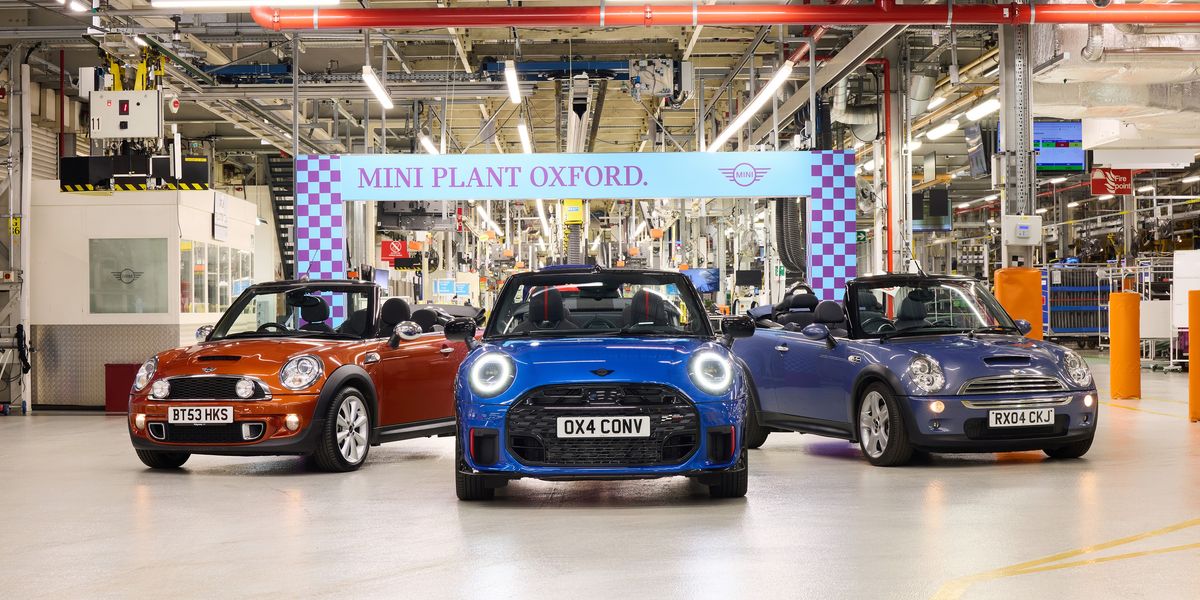BMW has confirmed it is delaying a massive £600million investment to reintroduce electric vehicle production at its Oxford Mini plant, citing “multiple uncertainties facing the automotive industry”.
The car manufacturer has put plans on ice that would have seen production of two new electric Mini models begin at the Cowley plant in 2026.
The decision comes amid slower than expected take-up of electric cars, with European Union EV sales dropping by 5.9 per cent in 2024.
The pause affects plans announced in September 2023 to build the electric Mini hatch and new Aceman crossover at the UK facility.
Do you have a story you’d like to share? Get in touch by emailingmotoring@gbnews.uk
The electric vehicle plan for Mini’s plant in Oxford is now at risk
MINI
In a statement, BMW said: “Plant Oxford is at the heart of Mini production, manufacturing and exporting a range of models, which are sought after in the UK and around the world.
“However, given the multiple uncertainties facing the automotive industry, the BMW Group is currently reviewing the timing for reintroducing battery-electric Mini production in Oxford.
“We have informed the UK Government of our decision to review the timeline for reintroducing battery-electric production in Oxford. As part of this discussion, we agreed not to take the previously announced grant, but we remain in close dialogue about our future plans.”
This comes despite BMW Group telling GB News earlier this month: “The BMW Group is strongly committed to the UK. We have four manufacturing plants including the Home of Mini with plants in Oxford and Swindon.”
READ MORE: Mini remains ‘strongly committed’ to the UK with ‘positive growth’ for electric cars and £600m factory boost
The grant was part of a Government subsidy package intended to secure BMW’s electric investment in Oxford, with no funds to be drawn until the project proceeds as planned.
Despite the delay in investment, BMW confirmed that significant infrastructure work is still being done at the Oxford plant. Construction is “well underway to make the plant future-ready”, including a new “state-of-the-art logistics facility”.
Some of the planned £600million investment will also go to the Swindon pressing plant, which will produce body parts for electric models. However, the majority of the investment was earmarked for Oxford’s assembly operations, which remains under review.
Dan Caesar, CEO of EVUK, told GB News: “While it would be disappointing to see Mini’s all-electric ambitions slow, not least for those impacted, it’s important to set this into context. The battery EV market is on a six-month growth streak in the UK and many carmakers are selling more than ever before, but some are not.
“There are multiple factors behind this, but most obvious one is that there’s more competition than ever before, while OEMs from BMW to BYD are benefiting, not everyone can win. Mini’s EV products are attractive and we expect this to be a short-term blip for the brand.”
The UK has emerged as Europe’s largest electric vehicle market, with record registrations of 381,970 units in 2024, representing a 19.6 per cent market share.
BMW has emphasised that the Oxford facility remains central to its operations, stating: “Plant Oxford is at the heart of Mini production, manufacturing and exporting a range of models, which are sought after in the UK and around the world.”
The company says it is seeking “a clear path to electromobility” before committing to the full investment, Auto Express reported.
LATEST DEVELOPMENTS:
The first Mini Convertible was produced at the Mini Plant Oxford in November last year
PA
Former Nissan executive and founder of Palmer Energy, Dr Andy Palmer, said: “BMW pausing upgrades to their Oxford Mini plant is clearly disappointing.
“Despite widespread media commentary, the volume of EVs sold is not reducing, it’s growing – but the growth of EV sales is not as strong as initially anticipated.
“The UK Government’s lack of certainty around the ZEV Mandate has caused yet more confusion for OEMs (and consumers) at a time when they are crying out for certainty.”
The Department for Transport said it recognises the challenges facing car manufacturers and is listening to their concerns. A DfT spokesperson confirmed it is consulting on “reinstating the 2030 electric vehicle deadline while also protecting jobs”.
